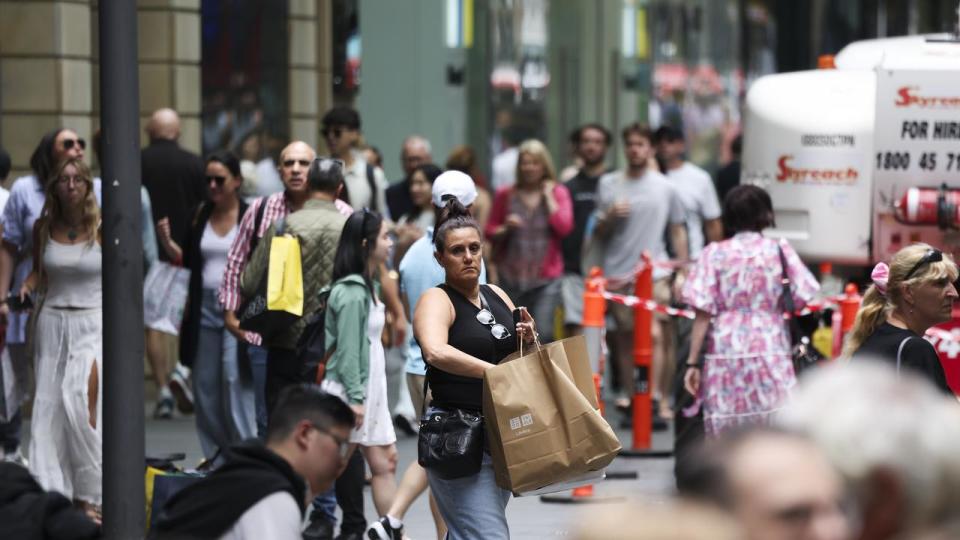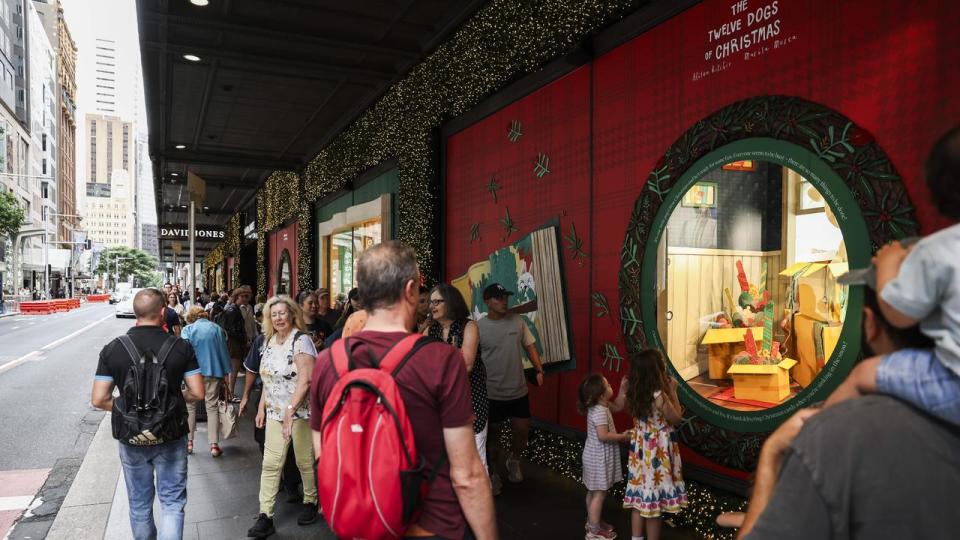Aussies’ shock Christmas budget revealed

Australians should expect to spend at least 10 per cent more this Christmas with the average person expected to fork out well over $1000 on the festive season.
The average adult should prepare to spend $1479 this Christmas when taking into account presents, food, alcohol, eating out and travel according to new Finder data.
Collectively, the country is expected to spend $30 billion over the December quarter, a 10 per cent increase compared to last year’s $27.3 billion Christmas bill.

To many people’s surprise, men are expected to spend significantly more over the holiday season, with males to fork out $1714 versus women’s spending of $1245.
That’s except for gifts, with the average woman to send $406 while men will spend 19 per cent less with $341.
Victorians will spend more than Aussies in other states with an average budget of $1765 followed by those in NSW with $1657.
Queenslanders will spend the least this year at $1064 with the second smallest bill of $1160 going to South Australians.
As thousands of people plan on returning home to visit family and friends over the holidays, travel is by far the biggest expense with the average person spending $533 on flights and related expenses.
NSW residents are predicted to splurge the most on travel ($710) while many Queenslanders will be enjoying a Christmas at home with their average spend on flights coming in at $316.

Next up is presents, with an average spend of $373 on gifts for loved ones.
After months of the cost of living crisis impacting Australian wallets, a quarter of people bought presents during the recent Black Friday sales while one in five have implemented a gift giving limit with loved ones.
Christmas feasts are also set to cost more this year thanks to inflation, with the average person predicted to spend $249 on food and $192 on alcohol for December 25.
Millenials are predicted to spend the most this year ($1924) out of all the generations while Gen Z are predicted to spend the least ($1023).
The increase in Christmas costs have driven millions of people to into debt with one in five people -- the equivalent of 4.2 million Australians -- to rely on some form of credit to fund the festive period.
More than one in ten (11 per cent) will us a credit card while seven per cent of shoppers are using buy-now pay-later services.
There’s concern that some Australians could get in over their heads with spending this Christmas according to Finder personal finance expert Sarah Megginson.
“If you don’t get on top of your repayments, you could end up with a debt hangover that goes well past Christmas and into the new year,” she said.

“Your capacity to repay the purchases you’re making, whether you’re paying using credit cards, personal loans or buy now pay later, is what you need to think about before you go shopping – not after.“
Ms Megginson urged Australians to figure out what they want to spend before heading to the shops.
“If you rack up a debt of $1,479, it could cost you $148 or more in interest alone. It could be much higher if you end up paying a lot of BNPL fees, and it could take you until next Christmas to pay it off if you don’t have a plan,” she said.
“Don’t go into it blindly – look at how much you can afford to spend and look for opportunities to cut back in other areas, to free up some budget for Christmas.”

 Yahoo Lifestyle
Yahoo Lifestyle 
